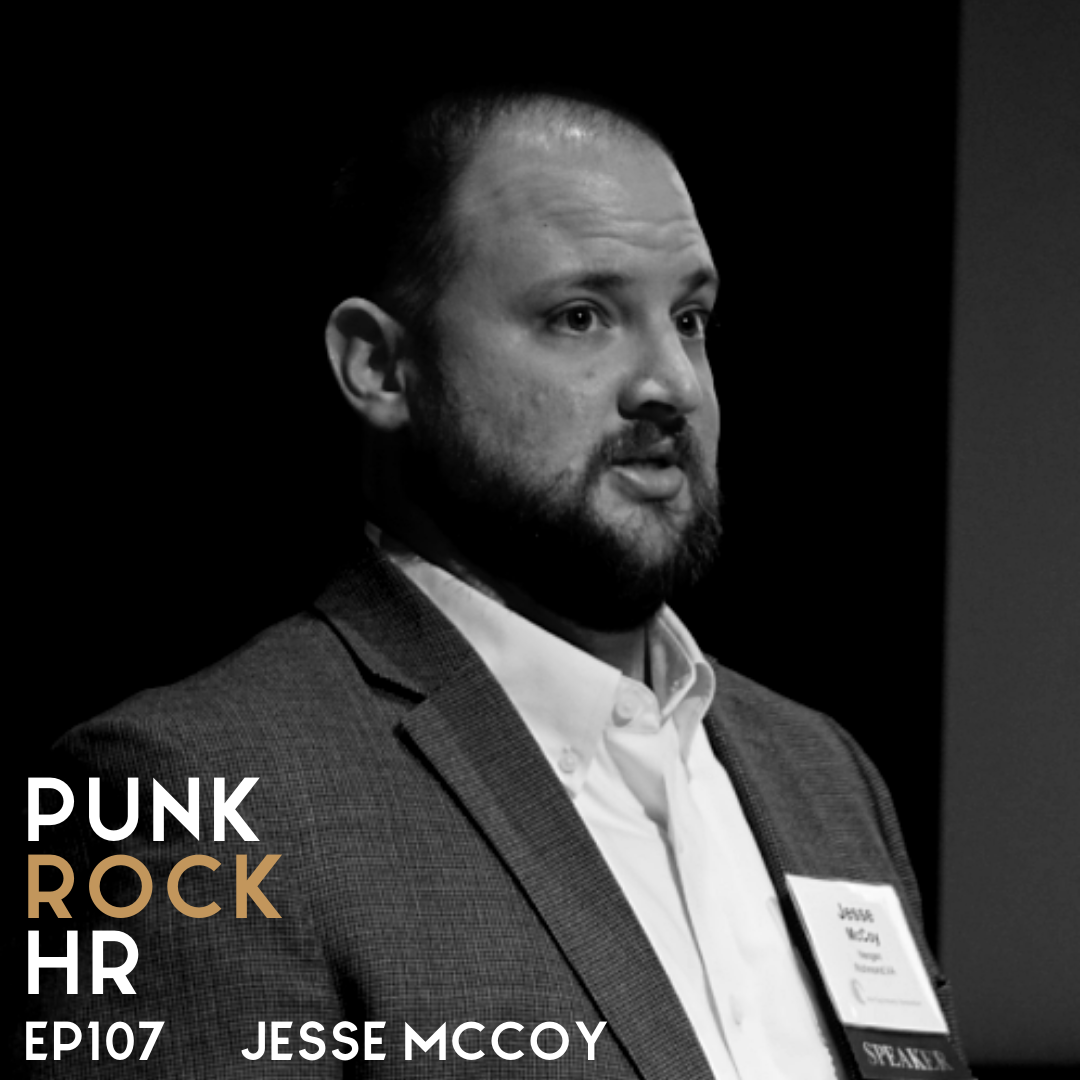
Punk Rock HR Episode 107:
One of the weirder stories to emerge from the COVID-19 crisis is that we might have a bacon shortage. Yeah, seriously. Now, I’m a vegetarian, and I have a lot of assumptions about how meat is made. But, a lack of bacon? That didn’t sound right to me.
So I reached out to my friend Jesse McCoy, who is an expert in biosecurity, specifically food and animal health. He keeps animals from getting sick, so we don’t get sick. And when it comes to bacon shortages, it turns out that animals aren’t the problem, it’s humans. We’re not washing our hands. We’re not wearing masks. We’re spreading COVID-19 to individuals who work in the meat industry. And then when they go to work, they’re getting their colleagues sick. And that’s having an effect at many different production facilities, which has a downstream impact on the supply chain.
Jesse joined me to discuss whether or not the individuals who work on the line are indeed victims. Are they low paid? Are they working in terrible environments? Moreover, I had questions about how meat is made. What’s the myth? What’s the reality? Jesse helps answer those questions and sheds light on what conditions are currently like in the food processing industry. You’re going to hear how our decisions in the grocery store affect a global enterprise. I think you’re going to love this conversation.
In this episode you’ll hear:
- Biosecurity: what it is and what Jesse does as part of his work.
- The intersection of labor and food production, including what we should and how it affects what is happening in the world.
- The working conditions, today, within the confines of food production facilities.
- Some myths about animal genetics and food production.
- When people get involved, that is when we increase the likelihood of having a foodborne pathogen.
- The concept that animals are being depopulated. What does that mean?
- Jesse leaves us with some things he would like listeners to know about food and what we can do right now to be good citizens, ethical consumers, and good advocates for farms.
“The food system is a chain, and if one of those links gets weak, everything changes.” Jesse McCoy
KEY TAKEAWAYS
WHAT IS BIOSECURITY?
Biosecurity is the practice of keeping disease away from a host. So for a disease to happen, it’s a contact sport. You have to have a viable path, the agent that causes the disease. And you have to have a sustainable host. The host is the thing that gets the disease. If we can keep those two things from joining, then you never have a disease. That’s the goal of biosecurity.
HOW IS FOOD PRODUCTION BEING IMPACTED BY COVID-19?
The possible shortage of things like bacon and other meat is not because there aren’t enough animals or because there wasn’t a demand for those animals. It is because there are people not willing to come to the processing plant and do the processing of animals. And so we have animals ready to go to the market, but we don’t have the people to process them in the market. The food system is a chain, and if one of those links gets weak, everything changes.
WHAT DOES JESSE WANT LISTENERS TO KNOW ABOUT FOOD AND WHAT WE CAN DO RIGHT NOW TO BE GOOD CITIZENS, ETHICAL CONSUMERS AND GOOD ADVOCATES FOR FARMS?
Here’s more from Jesse: “Nobody cares more about doing this right than the farmer. One of the things I constantly deal with is people saying, ‘You’re not telling me the truth, you work for the industry.’ There are plenty of people right now listening to this thinking that I’m just full of it, right? And it’s just not true. Right? Like nobody cares more about this industry than the people who work in it, farmers care. The people in the industry care.”
“We used to be connected two generations ago, I think it goes, half of the people in the U.S. knew somebody or related to somebody who worked in the food system. And now it’s 2%. And so we have this disconnect. I would encourage you to seek someone out and talk to them. They’ll talk to you. There’s plenty of people out there on airplanes who have sat next to me and asked what I did and, you know, after they turned their nose up for a little bit, got interested in the food industry. Have that conversation. I don’t know anybody who works in the food industry that wouldn’t be happy to have an honest conversation with you. But you have to be open-minded, right? You can’t come at it as farmers are the worst people on the planet. Just talk to them and get their experience. But I think it’s been cool to see this turn in a society where everybody is interested in their food now.”